Terry Farish's Blog, page 25
October 25, 2013
“Children of War”
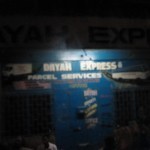

I’m shaping a new program I offer in schools and communities. Through documentary photos, oral history of refugees, reports of on-the-scene war correspondents, and readings from The Good Braider, I takes listeners on the journey of children and their families out of war in South Sudan. The program is called ”Children of War” & captures the larger picture of contemporary displacement of populations due to conflict. Some documentary photographers and have granted permission to show their stunning photos in schools.
Nancy Watson, librarian at Bangor High School in Maine, in collaboration with English and social studies teachers invited me to present for students in World Issues Seminar, Geography, and English classes. Nancy described the program as one that honors people like Viola in the novel, something I sought to do. She wrote, ”Terry’s multi-media approach to sharing these difficult stories is both a celebration of the lives of young people who have grown from their adversity and a tribute to the creative and beautiful individuals who are living right in our midst in Maine.” Here’s Nancy’s story about “Children of War.”
I also had the extraordinary chance to audition my program in the University of New Hampshire class of Genevieve Aichele, director of the New Hampshire Theater Project. She teachers a class in public speaking to students who come from varied disciplines and experiences, some from wars in Iraq and Afghanistan. To this tough crowd, I presented. We were all emotionally vulnerable in the room, talking about war. We all learned.
Librarians on Verse Novels
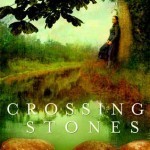
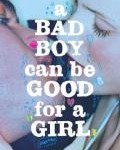
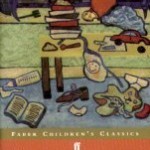
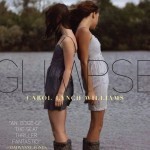
For a School Library Journal article, I interviewed many librarians about their recommendations of verse novels to kids and teens in their libraries. And I interviewed many writers about their process in writing verse novels. A new direction was given to the article by SLJ and a lot of these wonderful speakers are not in the final piece. The editor’s advice – Librarians know all that. Tell them some inside story about you, something only they will know if they read this piece. So I scratched my head and tried to imagine that.
We took out the quotes from my librarian friends and colleagues. However, I have them on record. Full interviews with writers I interviewed are here on my site under the category Verse Novels, like this post is. But, here are some gems from librarians and a poet on the topic of verse:
“Hi Terry! I would recommend a verse novel to a reluctant reader (and anyone else for that matter) for the simple reason that it is less intimidating to be faced with a small, self-contained episode, surrounded by a lot of white space, than it is to face a multi-page chapter of solid text. Generally speaking, it’s one of those “potato chip” things–once you get started, you can’t read just one, and before you know it, you’ve finished a whole book.” Diane Mayr, Adult Services Librarian/Assistant Director
“For kids, it’s not about the form. It’s about the story. If they heard about a book from friends – like about an Ellen Hopkins – then they want it. Helen Frost’s Crossing Stones, I recommend that all the time to teachers to add it to their list. I always recommend Frenchtown Summer. I tell the teachers, Put some good things on the list. There is so much good stuff. Karen Hesse, A Bad Boy Can Be Good for a Girl [Tanya Lee Stone], the Make Lemonade trilogy, Chasing Brooklyn. Sold. I book talk that book. I put down a $20 bill and ask ‘What could you get for this?’ A father sold his daughter for less than this, for $18.’ Covers make or break it. The Watch that Ends the Night by Allan Wolf. I tell kids ‘Oh god you better read this’ [but the cover doesn't hook them].” Diane Sanabria, Young Adult Librarian, Leominster Public Library
“I love recommending verse novels, the fact that so few words can build a complex story make them perfect for both the reluctant reader (the extra white space makes it less daunting) and the voracious reader for the content. In my current position I do not find that I do much with curriculum related recommendations. My current favorite book to recommend is Carol Lynch Williams’ Glimpse. I would recommend this to any reader, it is a great hook book for reluctant readers, and complex enough for a strong reader.” Susan Schatvet, YA/Reference, Seabrook Library
”Hi, Terry. Will look forward to your article on verse novels — excited that you jumped into the fray! Usually it’s a young adult/teen patron that comes in and asks me where the novels in verse are. Crank and the others by Ellen Hopkins would be the most popular, and usually the novel that gets them hooked on that format. And, yes, the readers of her novels tend to be the reluctant reader type, and the type looking for high school situational stories with all that drama and some edginess.” Steffaney Smith
“Some kids don’t want anything to do with verse novels. But the subject is more of a factor. It’s always interesting to figure out how important format is. Sometimes a reader is pleasantly surprised at how good a novel in verse is. Maybe most are for girls.” Ann Hoey, Youth Services Coordinator, New Hampshire State Library
“I might recommend a verse novel when someone [upper elementary] comes in and says, “I don’t know what I want.” I give them something with simple language. Sharon Creech has some. They build up confidence because they have fewer words. It’s still fiction but it’s very simple. Not too simple so they’re not embarrassed. But simple enough so they feel competent. I work in the inner-city and we have people from all over the world.” Karen Isleb, Children’s Librarian, Manchester City Library
A favorite discovery in my research into verse - a poem sent to me by Albany, New York writer, Deb Livingston Picker.
When No Fire Can Warm Me
By Deb Livingston Picker
It’s the rhythm
that grabs me
the pulse of the poem
it’s the rhythm that moves me
that takes me home
the speed of the sorrow
the languorous love
the movement that moves me
the lateral bud
it takes me where
explains me when
rocks me baby
like I’m ink in the pen
Here’s a link to my article “Why Verse?” in School Library Journal online, Nov. 18, 2013
Librarians on Verse Novels, and a poem




For a School Library Journal article, I interviewed many librarians about their recommendations of verse novels to kids and teens in their libraries. And I interviewed many writers about their process in writing verse novels. A new direction was given to the article by SLJ and a lot of these wonderful speakers are not in the final piece. The editor’s advice – Librarians know all that. Tell them some inside story about you, something only they will know if they read this piece. So I scratched my head and tried to imagine that.
We took out the quotes from my librarian friends and colleagues. However, I have them on record. Full interviews with writers I interviewed are here on my site under the category Verse Novels, like this post is. But, here are some gems from librarians and a poet on the topic of verse:
“Hi Terry! I would recommend a verse novel to a reluctant reader (and anyone else for that matter) for the simple reason that it is less intimidating to be faced with a small, self-contained episode, surrounded by a lot of white space, than it is to face a multi-page chapter of solid text. Generally speaking, it’s one of those “potato chip” things–once you get started, you can’t read just one, and before you know it, you’ve finished a whole book.” Diane Mayr, Adult Services Librarian/Assistant Director
“For kids, it’s not about the form. It’s about the story. If they heard about a book from friends – like about an Ellen Hopkins – then they want it. Helen Frost’s Crossing Stones, I recommend that all the time to teachers to add it to their list. I always recommend Frenchtown Summer. I tell the teachers, Put some good things on the list. There is so much good stuff. Karen Hesse, A Bad Boy Can Be Good for a Girl [Tanya Lee Stone], the Make Lemonade trilogy, Chasing Brooklyn. Sold. I book talk that book. I put down a $20 bill and ask ‘What could you get for this?’ A father sold his daughter for less than this, for $18.’ Covers make or break it. The Watch that Ends the Night by Allan Wolf. I tell kids ‘Oh god you better read this’ [but the cover doesn't hook them].” Diane Sanabria, Young Adult Librarian, Leominster Public Library
“I love recommending verse novels, the fact that so few words can build a complex story make them perfect for both the reluctant reader (the extra white space makes it less daunting) and the voracious reader for the content. In my current position I do not find that I do much with curriculum related recommendations. My current favorite book to recommend is Carol Lynch Williams’ Glimpse. I would recommend this to any reader, it is a great hook book for reluctant readers, and complex enough for a strong reader.” Susan Schatvet, YA/Reference, Seabrook Library
”Hi, Terry. Will look forward to your article on verse novels — excited that you jumped into the fray! Usually it’s a young adult/teen patron that comes in and asks me where the novels in verse are. Crank and the others by Ellen Hopkins would be the most popular, and usually the novel that gets them hooked on that format. And, yes, the readers of her novels tend to be the reluctant reader type, and the type looking for high school situational stories with all that drama and some edginess.” Steffaney Smith
“Some kids don’t want anything to do with verse novels. But the subject is more of a factor. It’s always interesting to figure out how important format is. Sometimes a reader is pleasantly surprised at how good a novel in verse is. Maybe most are for girls.” Ann Hoey, Youth Services Coordinator, New Hampshire State Library
“I might recommend a verse novel when someone [upper elementary] comes in and says, “I don’t know what I want.” I give them something with simple language. Sharon Creech has some. They build up confidence because they have fewer words. It’s still fiction but it’s very simple. Not too simple so they’re not embarrassed. But simple enough so they feel competent. I work in the inner-city and we have people from all over the world.” Karen Isleb, Children’s Librarian, Manchester City Library
A favorite discovery in my research into verse - a poem sent to me by Albany, New York writer, Deb Livingston Picker.
When No Fire Can Warm Me
By Deb Livingston Picker
It’s the rhythm
that grabs me
the pulse of the poem
it’s the rhythm that moves me
that takes me home
the speed of the sorrow
the languorous love
the movement that moves me
the lateral bud
it takes me where
explains me when
rocks me baby
like I’m ink in the pen
Thank you, Deb. Thank you, everybody for helping on this long quest into the subject of verse.
September 18, 2013
This Everything Dance
The title of these posts about writing, This Everything Dance, comes from the closing line of this prose poem by William Stafford.
“I like to live in the sound of water, in the feel of the mountain air. A sharp reminder hits me: this world still is alive; it stretches out there shivering toward its own creation, and I’m part of it. Even my breathing enters into this elaborate give-and-take, this bowing to sun and moon, day and night, winter, summer, storm, still—this tranquil chaos that seems to be going somewhere. This wilderness with a great peacefulness in it. This motionless turmoil, this everything dance.”
August 30, 2013
Listening to Write
Listening plays a key role in the process of conceiving and writing a story. Here are some images about the role of listening to me in the creation of two books.
August 20, 2013
I’m Your Neighbor Portland
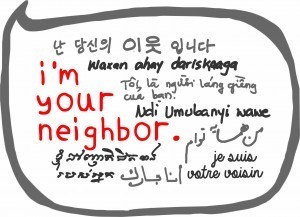 Curious City is launching an ”I’m Your Neighbor” Book Club in Portland, Maine this summer at the Portland Public Library with support from the Maine Humanities Council. This is a city-wide summer reading series featuring nine books about new immigrants in Maine, including The Good Braider. Even if you’re not in Maine, we invite you to join in the reading about books that are also about the changing face of the U.S.
Curious City is launching an ”I’m Your Neighbor” Book Club in Portland, Maine this summer at the Portland Public Library with support from the Maine Humanities Council. This is a city-wide summer reading series featuring nine books about new immigrants in Maine, including The Good Braider. Even if you’re not in Maine, we invite you to join in the reading about books that are also about the changing face of the U.S.Here are the books.
Here is the “I’m Your Neighbor” Readers Guide to The Good Braider.
Appearances, Presentations

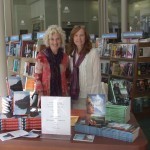
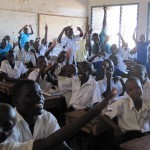
Conference of the Maine Council for English Language Arts
Keynote Address
March 28, 2014 Point Lookout, Northport, Maine
July 3, 2013
Children’s Literature and Adult Literacy
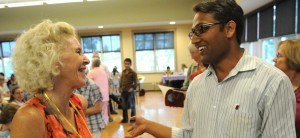 For five year it has been my great joy, and challenge, to direct the adult literacy program of the New Hampshire Humanities Council. The NH Humanities Council Newsletter features an article I wrote on bringing children’s literature to adults learning English. I wrote about our work with adult students and the goal of the book discussion program that is the cornerstone of our literacy work. The article is a reflection on bringing children’s literature to adults. As of July, I am not longer on the staff of the Humanities Council but I support the ongoing work and cheer on my colleague every day.
For five year it has been my great joy, and challenge, to direct the adult literacy program of the New Hampshire Humanities Council. The NH Humanities Council Newsletter features an article I wrote on bringing children’s literature to adults learning English. I wrote about our work with adult students and the goal of the book discussion program that is the cornerstone of our literacy work. The article is a reflection on bringing children’s literature to adults. As of July, I am not longer on the staff of the Humanities Council but I support the ongoing work and cheer on my colleague every day.
“Write a Story in Verse”
Here’s a link to one of the summer writing workshops I’m leading. This one is at the Howe Public Library in Hanover, New Hampshire. Summer, the perfect time to lose yourself in your own work of fiction. 
June 4, 2013
Fisher Boys
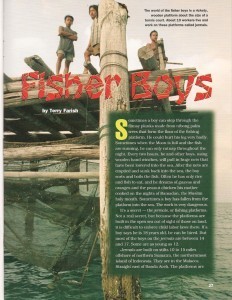 “Sometimes a boy can step through the flimsy planks made from nibong palm trees that form the floor of the fishing platform. He could hurt his leg very badly. Sometimes when the moon is full and the fish are running, he can only catnap throughout the night.”
“Sometimes a boy can step through the flimsy planks made from nibong palm trees that form the floor of the fishing platform. He could hurt his leg very badly. Sometimes when the moon is full and the fish are running, he can only catnap throughout the night.”
Read my full article here: about the life of boys from Sumatra who work off fishing platforms on the sea. From FACES: PEOPLE, PLACES, AND CULTURES (May – June 2009)



